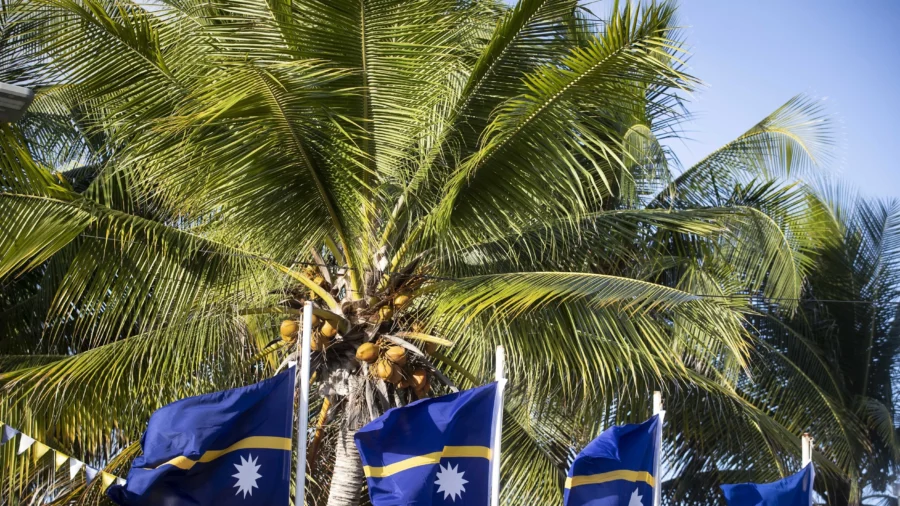Diplomatic relations have resumed between China’s communist regime and the tiny Pacific island nation of Nauru. It follows a meeting between the foreign ministers of both nations, which came about after Nauru’s decision to cut ties with Taiwan earlier this month.
The move was initiated by China’s communist regime, which claims Taiwan is part of its territory—despite never having ruled the island. The Chinese regime claims the island as its own despite the fact that Taiwan is a de facto independent country, with its own military, democratically elected government, and constitution.
The meeting between Chinese Foreign Minister Wang Yi and Nauru’s Minister for Foreign Affairs and Trade Lionel Aingimea took place at the Diaoyutai State Guesthouse in Beijing on Jan. 24.
“We look forward to the practical cooperation that’s going to happen between Nauru and China. The prospect is bright,” Mr. Aingimea said.
Nauru’s decision to formally recognize Taiwan as part of China comes just days after Taiwan’s recent presidential election, where its population of around 23 million effectively rejected Beijing’s claims to sovereignty over them.
The self-ruled island of Taiwan now has only 12 remaining diplomatic allies. However, the island has excellent unofficial relations with many other nations, particularly the United States and Japan.
Nauru’s decision was given a guarded reception by U.S. officials who, despite maintaining diplomatic relations with China, also maintain strong unofficial ties with Taiwan, which include arms and weapons contracts for the island’s defense.
Nauru has been wavering in its diplomatic relations with both China and Taiwan for decades. It maintained an official relationship with Taiwan from 1980 to 2002, when it switched allegiance to Beijing. Then, in 2005, it switched back to Taiwan following allegations of bribery and coercion from both nations on Nauruan officials.
“This policy change is a significant first step in moving forward with Nauru’s development,” Nauru’s government said in a news release announcing the severing of relations with Taiwan.
China’s communist regime does not recognize Taiwan’s government or its right to diplomatic recognition. This includes participation in global bodies such as the United Nations, or any official contact with foreign political entities.
Moreover, China has been actively engaging in underhanded tactics to sway Taiwan’s political allies toward Beijing. Since President Tsai Ing-wen took office in 2016, ten countries have switched ties from Taipei to Beijing.
Taiwan’s Democratic Progressive Party (DPP) advocates maintaining the status quo under which Taiwan has its own government, military, and de-facto independent status outside of the control of the PRC, while China remains determined to submit the island nation to its control.
Since last year, China has also ramped up military drills around the island in an aggressive show of force.
After Nauru’s break with the self-ruled island, Taiwan’s Deputy Foreign Minister Tien Chung-kwang accused China of purposefully timing the news to coincide with the election of current Vice President Lai Ching-te as the island’s new president.
He said the intention of China’s totalitarian regime was to “attack the democracy and freedom that the Taiwanese people are proud of.”
Of the 12 countries with official ties to Taiwan, seven are in Latin America and the Caribbean, three are Pacific islands, one is in Africa, and the last one is Vatican City.
As the majority of Taiwan’s remaining allies are developing nations, it could make them vulnerable to China’s global influence and willingness to offer hefty financial inducements in exchange for changes in foreign policy—a tactic China’s communist regime is notorious for.


